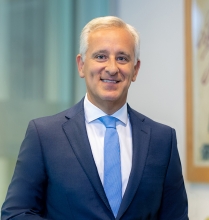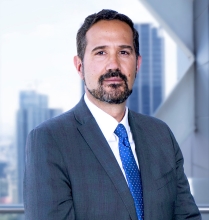International Arbitration Newsletter - November 2018 | Regional Overview: Middle East and Africa
The most relevant updates from Middle East and Africa from the global International Arbitration and ADR practice group at Garrigues.
EGYPT
Spain’s Naturgy and Italy’s Eni apply for ICSID award enforcement against Egypt
On 17 October 2018, Spanish Gas giant Naturgy (formerly Gas Natural Fenosa), and Italy´s Eni (together UFG) filed an enforcement petition in the US District Court for the District of Columbia in Washington, DC, for the award issued by an ICSID tribunal holding Egypt liable for failure to provide fair and equitable treatment under a claim brought under the in 2014 under the Spain-Egypt bilateral investment treaty.
The dispute relates to a plant at Damietta on Egypt’s Mediterranean coast, which produced liquefied natural gas for export to Spain. In 2012, the state-owned Egyptian Natural Gas Holding Company (EGAS) cut off gas supplies to the plant in the wake of the Arab Spring and Egyptian revolution, alleging energy shortages in the domestic market, and rendering the plant inoperative.
UFG filed its ICSID claim under the Spain-Egypt bilateral investment treaty in 2014, arguing that Egypt’s conduct re the plant was discriminatory. The majority of the tribunal found in its award that Egypt was ultimately responsible for the decision to cut off gas supplies to the plant and referred to it as “a political decision in the broadest sense”.The tribunal awarded US$2 billion after taxes and before interest.
KENYA
Kenya's High Court sets aside award in favour of World Duty Free
On 5 October 2018, Kenya's High Court set aside a US$50 million award issued in 2012 by a sole arbitrator in favour of Isle of Man entity World Duty Free, holding it conflicts with a famous ICSID award that found that the contract underlying the dispute was procured through bribery.The court considered that the award had as its foundation a contract that an ICSID tribunal had found was obtained through high-level corruption, and that the arbitrator had erred in concluding that the award was not binding because it had not been registered for enforcement in Kenya.
Pacific Wildcat loses ICSID claim against Kenya
An ICSID tribunal has issued an award declining jurisdiction over a claim filed against Kenya by subsidiaries of Canadian mining company Pacific Wildcat under the UK-Kenya bilateral investment treaty in 2015. The tribunal held that although there was no proof that their licence was obtained by corruption, it was issued in violation of local laws to protect the environment.
The dispute relates to a “prospecting licence” obtained by Cortec Mining Kenya to begin exploration of the mine in Kenya in 2008, which was twice renewed by the government of former president Mwai Kibaki. The tribunal rejected the allegations that Cortec secured its mining licence through corruption as unproven. However, the tribunal accepted that the licence to mine Mrima Hill under Kenyan law was void because of the absence of an environmental impact assessment.
QATAR
Qatar hit with first-ever Treaty claim
On 18 October 2018, ICSID saw a new claim being registered, filed by Jordanian TV and film producer Talal Al Awamleh and media companies Arab Telemedia Services and Ain Telemedia Studios against Qatar.The claim, which has been brought under the 2009 Qatar-Jordan bilateral investment treaty, relates to the alleged take-over by the Qatari state of shows Talal Al Awamleh was filming there, including the Middle East’s first-ever sci-fi series. The claimants allege that the expropriation of their investment had no legal basis and was without compensation. They also claim violation of a number of further standards, including fair and equitable treatment.
YEMEN
US District Court confirms ICC award against Yemen
The US District Court for the District of Colombia has granted a motion for default judgment confirming an ICC arbitral award issued in 2015 against Yemen and its ministry of oil and minerals in the amount of US$3.8 million in favour of three Indian oil companies (Gujarat State Petroleum Corporation, Alkor Petroo and Western Drilling).
The underlying dispute relates to production sharing agreements signed with Yemen in 2008 to engage in hydrocarbon exploration and production activities, and the termination of operations in the wake of protests against the country’s president Ali Abdullah Saleh. The final award rendered in Paris found that the oil companies were entitled to terminate under the force majeure clause.
Contacts



-
+52 55 1102 3570
-
+52 81 8153 3900
-
+52 442 296 6400
-
+57 601 326 69 99



